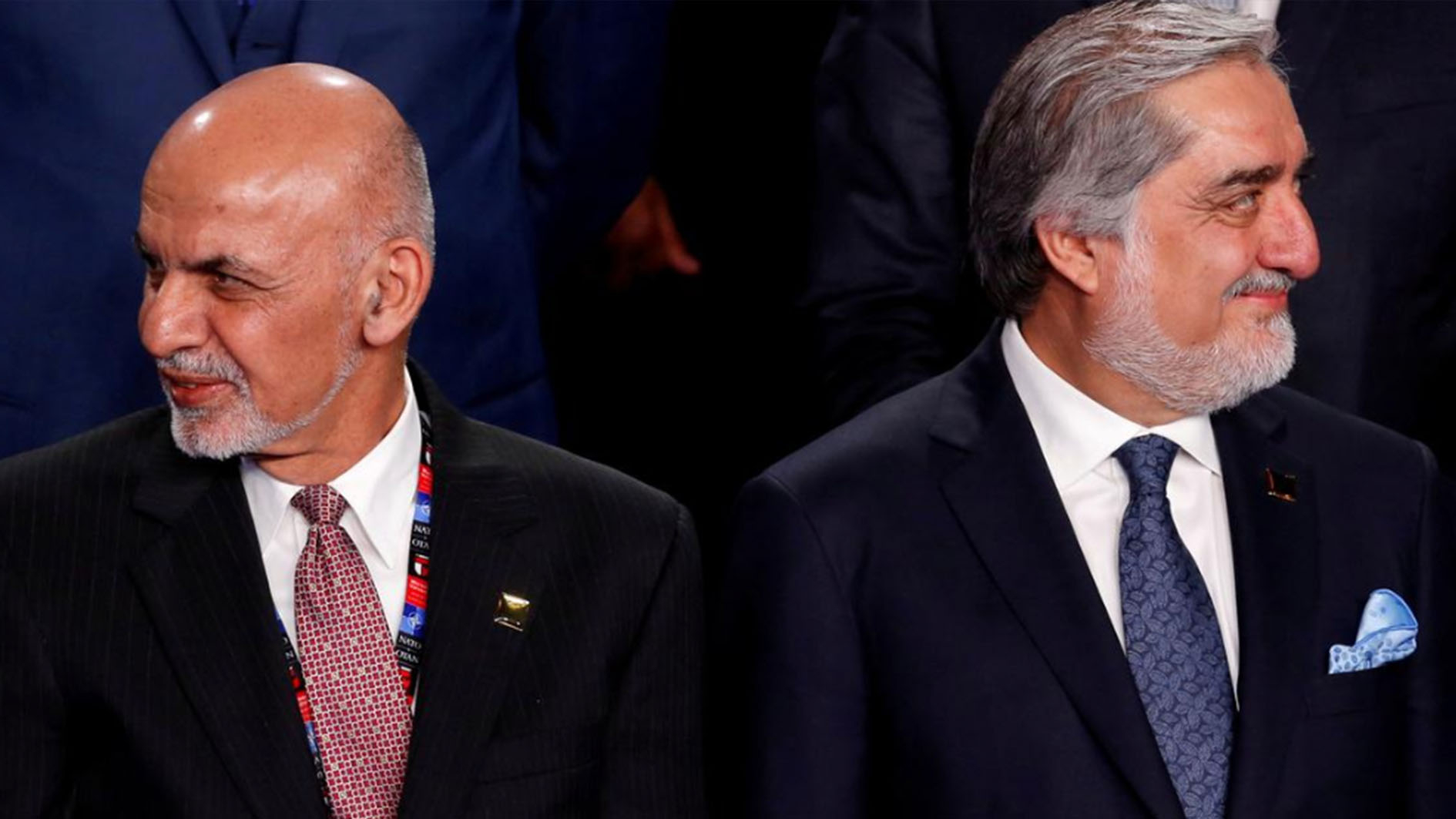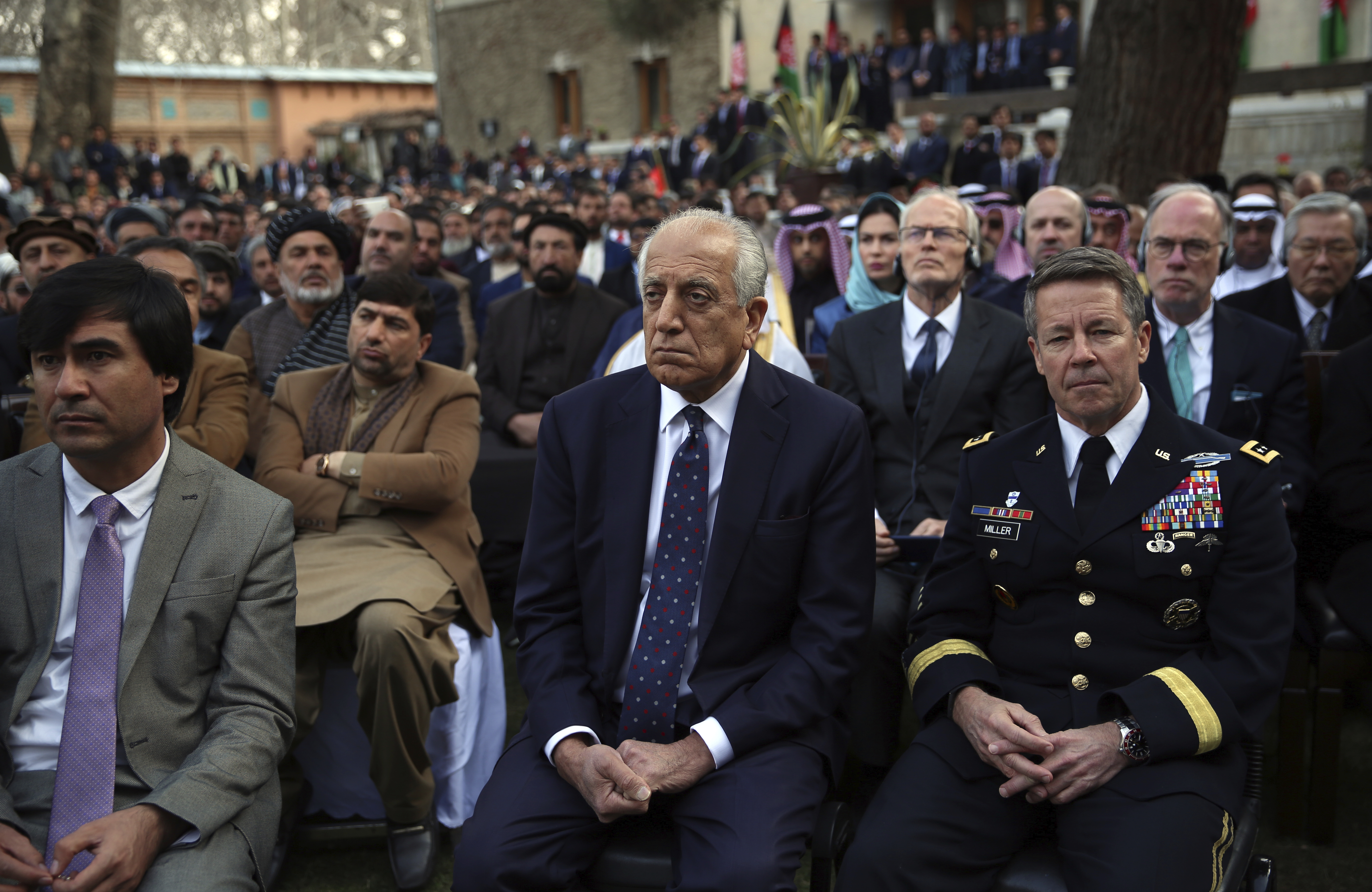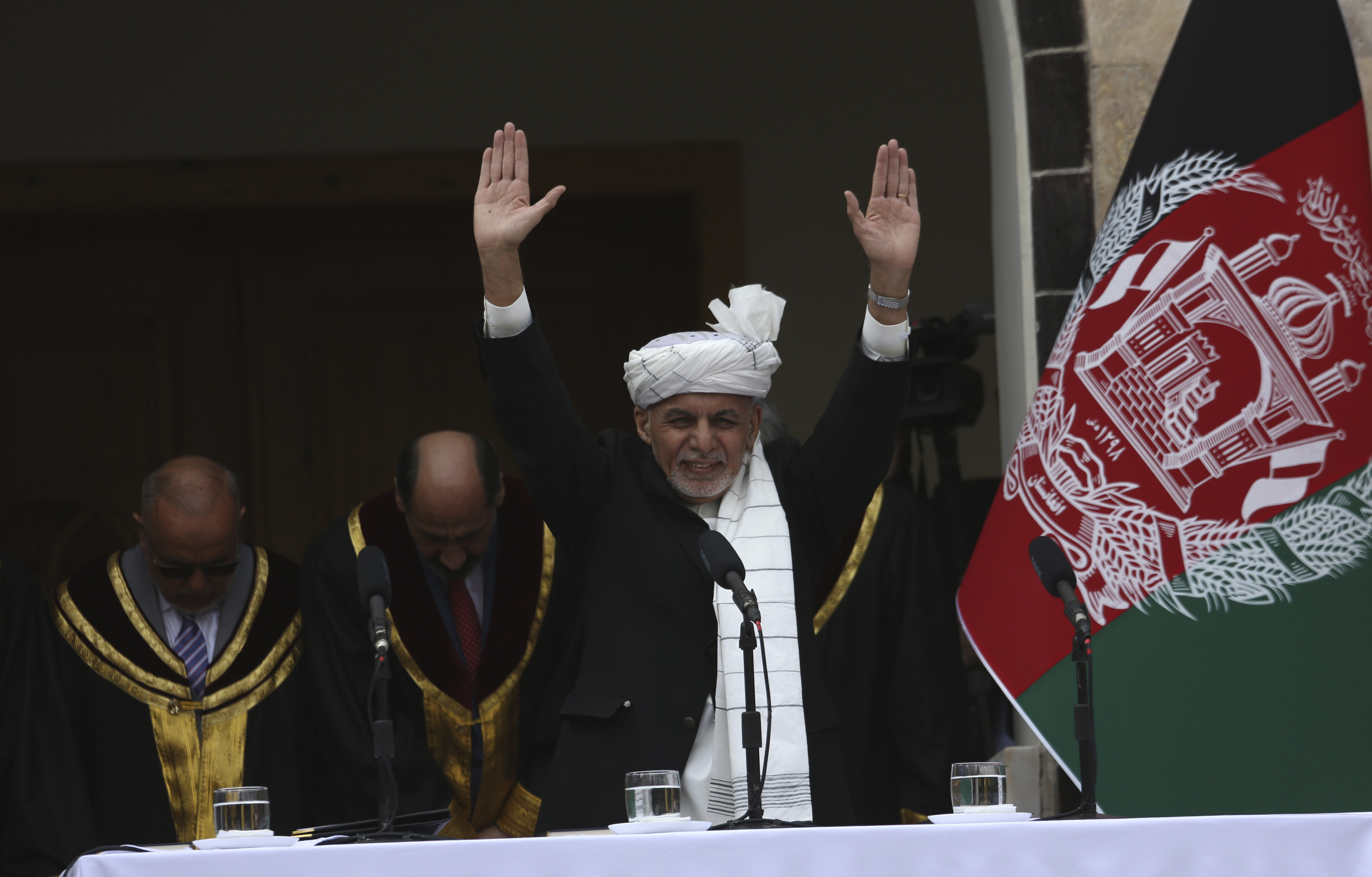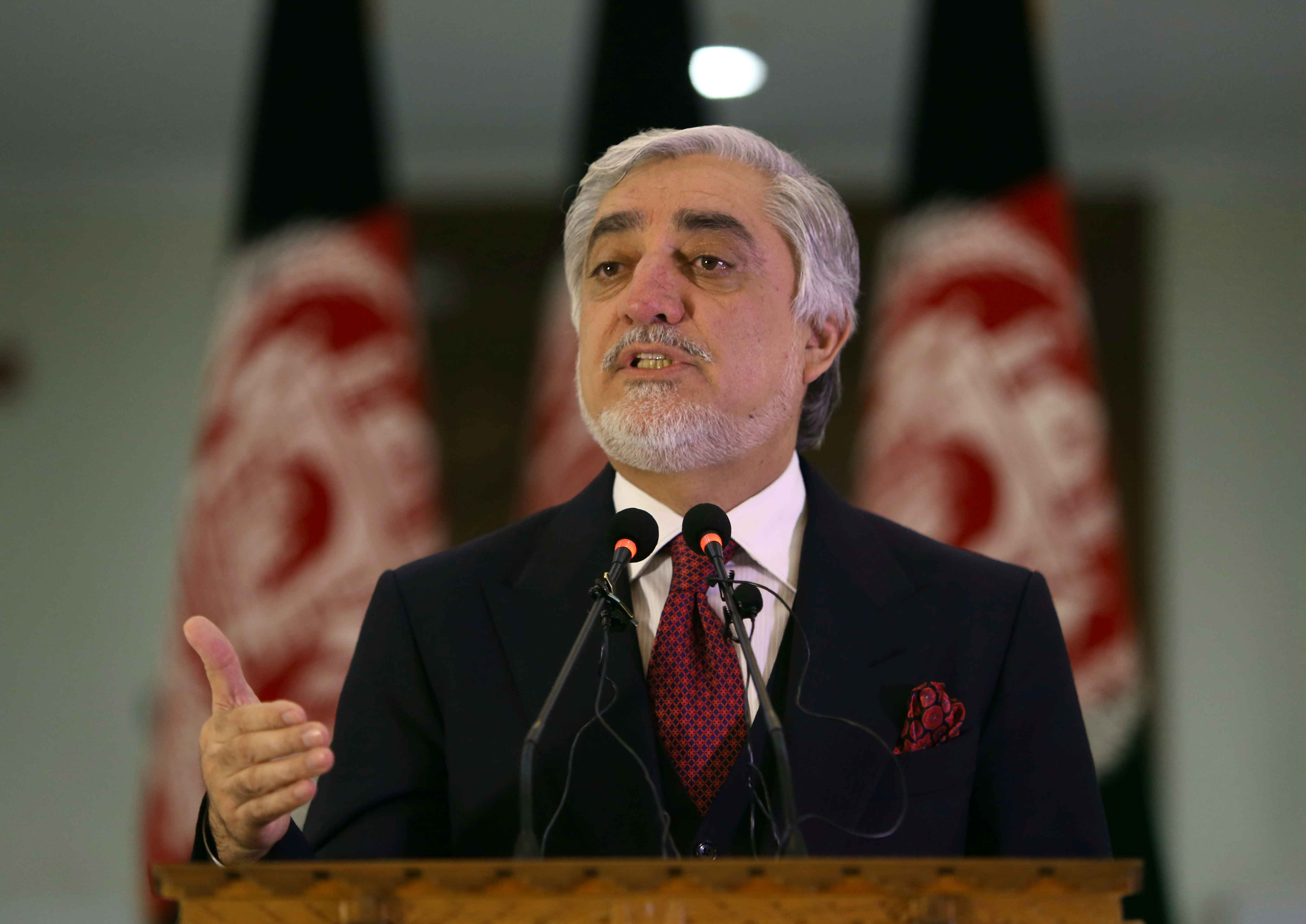04:17

Afghan President Ashraf Ghani was sworn in for a second term on Monday but his main rival for the top job refused to recognize the inauguration, holding his own swearing-in ceremony as a rival president.
Television footage showed Ghani taking an oath at the Presidential palace in Kabul at a ceremony attended by a number of foreign diplomats, including U.S. Special Envoy Zalmay Khalilzad and the head of U.S. forces in Afghanistan General Scott Miller.
The wrangling over the disputed September 28 election threatens to bring political chaos to Afghanistan days after the United States and the Taliban signed a deal on the withdrawal of U.S.-led international forces after 18 years of war.
Read more:
Could Afghanistan finally be on the road to peace?
U.S. and Taliban announce deal to reduce violence in Afghanistan
The Election Commission last month announced that Ghani had retained power by winning the September election. But his long-time rival, Abdullah Abdullah, rejected that and proclaimed himself the winner.
According to the election law, the swearing-in ceremony for the president must be held within 30 days of the announcement of the election result.

Head of U.S. forces in Afghanistan General Scott Miller (R) and U.S. peace envoy Zalmay Khalilzad (C) attend the inauguration ceremony for Ashraf Ghani at the presidential palace in Kabul, Afghanistan, March 9, 2020. /AP
Head of U.S. forces in Afghanistan General Scott Miller (R) and U.S. peace envoy Zalmay Khalilzad (C) attend the inauguration ceremony for Ashraf Ghani at the presidential palace in Kabul, Afghanistan, March 9, 2020. /AP
Blasts heard at Ghani's inauguration
Ghani's ceremony was disrupted by the sound of two rockets hitting the edge of the presidential palace, but there was no word of casualties and he continued his speech.
"I have no bulletproof vest on, only my shirt, I will stay even if I have to sacrifice my head," Ghani told the remaining crowd, as sirens sounded overhead.
ISIL later claimed responsibility for the attack in a statement on an affiliated Telegram channel, without offering proof.
Ghani said in a speech that the government he was forming would not include only members of his political camp though he would continue with the previous cabinet for two weeks.
"Then we will form an inclusive government after consultation," he said.
He plans to finalize a negotiating team for talks with the Taliban on Tuesday and to make a further announcement on demands by the Islamist militant group for the release of 5,000 prisoners.
The Taliban, which ruled Afghanistan from 1996 to 2001 and has been waging an insurgency since shortly after its fall from power, has made their release a condition for talks but Ghani said last week he had rejected the demand.

Afghan President Ashraf Ghani greets people after he was sworn in at an inauguration ceremony at the presidential palace in Kabul, Afghanistan, March 9, 2020. /AP
Afghan President Ashraf Ghani greets people after he was sworn in at an inauguration ceremony at the presidential palace in Kabul, Afghanistan, March 9, 2020. /AP
Diplomats are now waiting to see whether Abdullah appoints rival ministers and governors, and whether they take up office by force, said two diplomatic sources who declined to be named.
Khalilzad held talks with both Abdullah and Ghani's camps over the weekend to try and broker a solution to the impasse, diplomatic and political sources said.
Abdullah has offered to postpone his own ceremony in response to an appeal by Khalilzad, Abdullah's spokesman, Omid Maisam, said.

Afghan Chief Executive Officer Abdullah Abdullah speaks during a news conference in Kabul, Afghanistan, February 29, 2020. /AP
Afghan Chief Executive Officer Abdullah Abdullah speaks during a news conference in Kabul, Afghanistan, February 29, 2020. /AP
Rival leaders
Ghani and Abdullah are old rivals who both held roles in the previous government under a U.S.-brokered power-sharing agreement that followed the previous election in 2014.
A former foreign minister, Abdullah held the specially created post of chief executive in the outgoing government.
According to the election mission, Ghani secured 50.64 percent of the votes while Abdullah came second with 39.52 percent.
However, Abdullah rejected the outcome as "unfair" and said he is the winner of the election and deserves to form the government.
More than 1.9 million out of 9.4 million eligible voters cast their votes in September's presidential elections.
(With input from agencies)